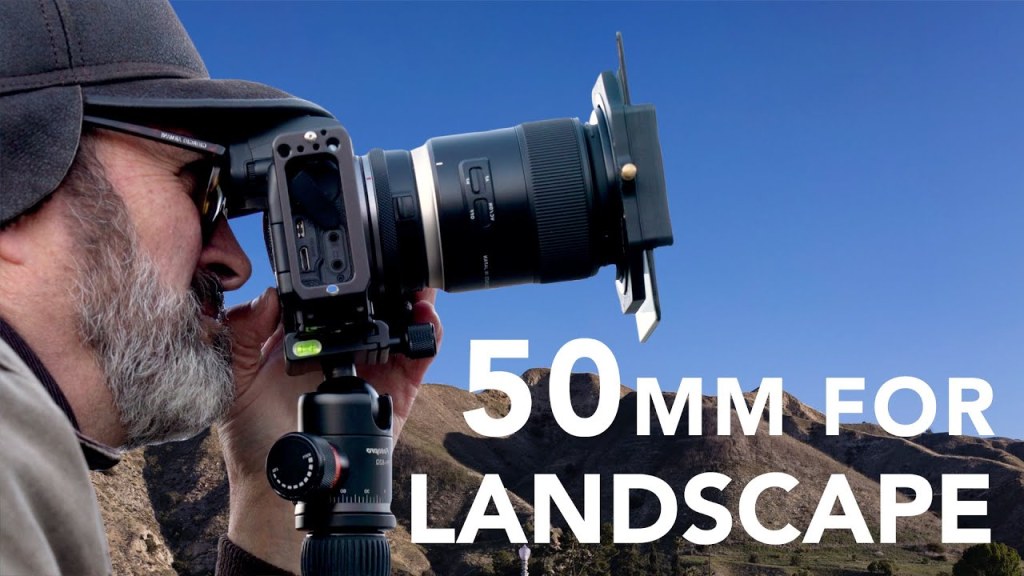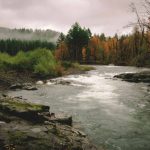Mastering Landscape Photography With The 50mm F Lens: Unleash Your Creativity And Capture Breathtaking Moments
Landscape Photography with 50mm f Lens: Capturing the Beauty of Nature
The Magic Behind Landscape Photography
Greetings, dear readers! Today, we delve into the captivating world of landscape photography and explore the wonders that can be achieved with a 50mm f lens. From majestic mountains to serene seascapes, landscape photography allows us to capture the breathtaking beauty of nature and immortalize it through our lenses.
3 Picture Gallery: Mastering Landscape Photography With The 50mm F Lens: Unleash Your Creativity And Capture Breathtaking Moments



Introduction to Landscape Photography
Landscape photography is a genre that focuses on capturing the beauty of the natural world. It involves capturing wide vistas, stunning landscapes, and dramatic scenery. With the right equipment and techniques, photographers can transport viewers to awe-inspiring locations and evoke emotions through their images.
In this article, we will be exploring the fascinating world of landscape photography through the lens of a 50mm f lens. This lens is renowned for its versatility and ability to capture stunning landscapes with exceptional clarity and detail. Whether you are a professional photographer or an enthusiast looking to expand your skills, this article will provide you with valuable insights and tips to elevate your landscape photography game.
What is Landscape Photography with a 50mm f Lens?

Image Source: tokinalens.com
At its core, landscape photography with a 50mm f lens involves using a fixed focal length lens with a 50mm focal length to capture wide-angle views of scenic landscapes. This lens allows photographers to capture expansive vistas while maintaining a natural perspective. With its wide aperture capabilities, the 50mm f lens also excels in low-light situations, allowing for stunning sunset and twilight shots.
Who Should Use a 50mm f Lens for Landscape Photography?
Landscape photographers of all skill levels can benefit from using a 50mm f lens. Whether you are a beginner looking to explore the world of landscape photography or an experienced professional searching for a versatile lens, the 50mm f lens can deliver outstanding results. Its compact size and lightweight design make it an excellent choice for photographers constantly on the move, allowing them to capture stunning landscapes without the burden of heavy equipment.
When to Use a 50mm f Lens for Landscape Photography?

Image Source: shotkit.com
The 50mm f lens is particularly well-suited for landscape photography during the golden hour, which refers to the period shortly after sunrise or before sunset. During this time, the soft, warm light enhances the colors and textures of the landscape, creating a magical atmosphere. The wide aperture of the 50mm f lens allows photographers to capture the stunning hues and dramatic lighting of these moments with exceptional clarity.
Where to Use a 50mm f Lens for Landscape Photography?
The beauty of landscape photography lies in the diversity of locations it offers. From towering mountains to vast deserts and tranquil lakes, the world is a photographer’s playground. The 50mm f lens can be used in various settings, including national parks, coastal regions, and urban landscapes. Its versatility allows photographers to capture both grand panoramas and intimate details, creating a visual narrative of the chosen location.
Why Choose a 50mm f Lens for Landscape Photography?
The 50mm f lens has several advantages that make it an excellent choice for landscape photography. Firstly, its wide-angle focal length allows for expansive compositions, capturing sweeping vistas in all their glory. Secondly, the wide aperture capabilities of the 50mm f lens enable photographers to create a shallow depth of field, emphasizing the main subject while beautifully blurring the background. Lastly, the 50mm f lens delivers exceptional sharpness and image quality, ensuring every detail is captured with precision.
How to Get the Best Results with a 50mm f Lens?

Image Source: ytimg.com
Here are some tips to help you make the most of your 50mm f lens for landscape photography:
1. 🌄 Experiment with different compositions: Explore various angles and perspectives to add visual interest to your images.
2. 🌅 Utilize leading lines: Incorporate natural elements such as rivers, roads, or paths to guide the viewer’s eye through the photograph.
3. 🌳 Use a tripod: To ensure optimal sharpness and stability, a sturdy tripod is essential, especially when shooting in low-light conditions.
4. 🌇 Shoot during the golden hour: Capture the captivating colors of sunrise and sunset to add a magical touch to your landscapes.
5. 🏞️ Pay attention to the foreground: Including an interesting foreground element can add depth and dimension to your images.
6. ⛰️ Explore different perspectives: Experiment with different focal lengths, angles, and heights to find unique and captivating viewpoints.
Advantages and Disadvantages of Using a 50mm f Lens for Landscape Photography
Advantages:
1. Greater versatility compared to wider focal lengths, allowing for more focused compositions.
2. Excellent image quality and sharpness.
3. Compact size and lightweight, making it ideal for outdoor photography.
4. Wide aperture capabilities for low-light shooting.
5. Affordable price range compared to specialized landscape lenses.
Disadvantages:
1. Limited zoom capabilities compared to zoom lenses.
2. Narrower field of view compared to wider focal lengths.
3. May require more effort to capture expansive landscapes.
Frequently Asked Questions (FAQ) about Landscape Photography with a 50mm f Lens:
1. Can I use a 50mm f lens for other types of photography?
Yes, the 50mm f lens is versatile and can be used for various genres of photography, including portraiture and street photography.
2. Is a 50mm f lens suitable for beginner photographers?
Absolutely! The 50mm f lens is a great option for beginners due to its ease of use and affordability.
3. How do I achieve a shallow depth of field with a 50mm f lens?
To achieve a shallow depth of field, select a wide aperture (low f-number) such as f/1.8 or f/1.4 and focus on your subject.
4. Can I use filters with a 50mm f lens?
Yes, filters such as neutral density (ND) filters and polarizers can enhance your landscape photography when used with a 50mm f lens.
5. Should I invest in a prime lens or a zoom lens for landscape photography?
Both prime and zoom lenses have their advantages. A prime lens like the 50mm f lens offers excellent image quality and is more affordable, while a zoom lens provides versatility in focal lengths.
Conclusion: Elevate Your Landscape Photography with a 50mm f Lens
By harnessing the power of a 50mm f lens, you can unlock new levels of creativity and capture stunning landscapes that will leave viewers in awe. The wide-angle focal length, exceptional image quality, and versatility of the 50mm f lens make it a valuable tool for any landscape photographer.
So, grab your camera, attach a 50mm f lens, and embark on a photographic journey to capture the beauty of the natural world. Let your creativity soar as you explore breathtaking landscapes and immortalize them through your lens.
Remember, the key to great landscape photography lies not only in the equipment you use but also in your passion, patience, and willingness to explore. So, go out there, chase the light, and capture the wonders of nature with your 50mm f lens.
Final Remarks: Unleash Your Creativity and Dive into the World of Landscape Photography
As we conclude this article, we hope that you have gained valuable insights and inspiration to pursue landscape photography with a 50mm f lens. Remember, the art of capturing landscapes is not confined to technicalities; it is an expression of your personal vision and connection with nature.
Explore the world around you, find new perspectives, and let your photographs tell a story. Embrace the challenges, learn from your experiences, and most importantly, enjoy the journey.
Disclaimer: The views and opinions expressed in this article are solely those of the author and do not necessarily reflect the official policy or position of any agency or organization.
This post topic: Hiking Trails

